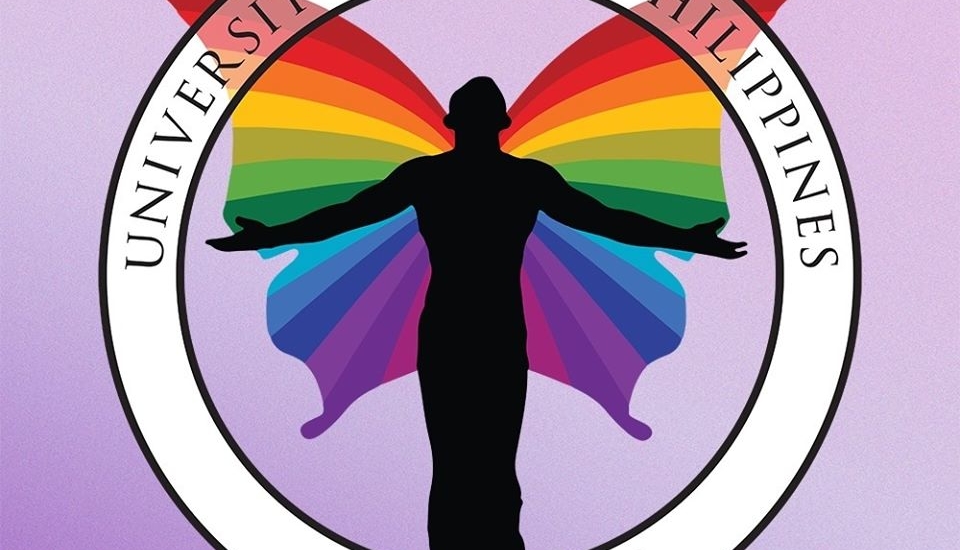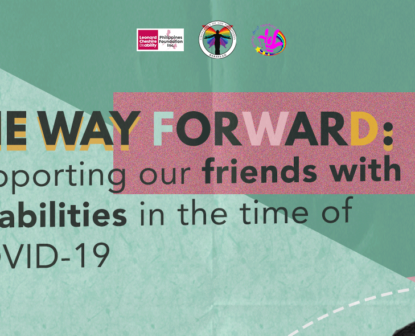Project
University-Wide SOGIESC Equality Policy
-
Amount Funded
24,973 EUROProject Duration
01 Feb 2020 - 31 Jan 2021 -
-
Lead organisation
University of the Philippines Babaylan (UP Babaylan)Partners
Host: Babaylanes, Inc
-
Established in 1992, UP Babaylan is the premier, longest-existing, and duly-recognised LGBTQ+ organisation in the Philippines and in Asia. Grounded in the principle that human rights are the basic foundation of all democratic ideals, UP Babaylan has been tirelessly fighting for gender equality through various campaigns, programmes, and platforms. Not only does the organisation advocate for reforms within the university but it has also extended the fight outside the university and involved students to address national issues. The organisation has staunchly advocated for the passage of a national Anti-Discrimination Bill since it was first filed in the House of Representatives in 1999, which was first drafted by our founding president. UP Babaylan is a member organisation of LAGABLAB—a network of Filipino LGBTQ organisations, individuals, and allies that seek to advance and protect the human rights and basic freedoms of the Filipino LGBT community with special focus on legislation and policy-making. The campaigns and projects of UP Babaylan are often in partnership with several offices of the University of the Philippines such as the Office of the Vice-Chancellor for Student Affairs, Office of Student Activities, and the UP Center for Women’s and Gender Studies, student councils, as well as other student organizations within and outside of the university.
-
Organisation
Established in 1992, UP Babaylan is the premier, longest-existing, and duly-recognised LGBTQ+ organisation in the Philippines and in Asia. Grounded in the principle that human rights are the basic foundation of all democratic ideals, UP Babaylan has been tirelessly fighting for gender equality through various campaigns, programmes, and platforms. Not only does the organisation advocate for reforms within the university but it has also extended the fight outside the university and involved students to address national issues. The organisation has staunchly advocated for the passage of a national Anti-Discrimination Bill since it was first filed in the House of Representatives in 1999, which was first drafted by our founding president. UP Babaylan is a member organisation of LAGABLAB—a network of Filipino LGBTQ organisations, individuals, and allies that seek to advance and protect the human rights and basic freedoms of the Filipino LGBT community with special focus on legislation and policy-making. The campaigns and projects of UP Babaylan are often in partnership with several offices of the University of the Philippines such as the Office of the Vice-Chancellor for Student Affairs, Office of Student Activities, and the UP Center for Women’s and Gender Studies, student councils, as well as other student organizations within and outside of the university.
-
Project
While there is an existing perception that the University of the Philippines (UP) is a gender-inclusive and safe space, UP is still reflective of the greater Philippine society. There remains a prevalence of discriminatory slurs and threats to the LGBTQI community and inequality that is deeply embedded in the existing policies. While we celebrate UP’s efforts towards gender equality, the belief that it is already at the peak of acceptance and inclusivity of diverse sexual orientation, gender identity and expression, and sex characteristics (SOGIESC) is a dangerous misconception, as it relegates LGBTQI issues as unnecessary or secondary to other issues. The University-Wide SOGIESC Equality Policy project addresses the existing gap in evidence-based data on LGBTQI issues, empowers the LGBTQI members of the UP community, and sets a precedent for community-led institutional policies that would protect LGBTQI persons against discrimination on the basis of SOGIESC. The project produces a comprehensive data on the experiences of the LGBTQI members of the UP Community and comprehensive documentation of cases of violence and discrimination based on SOGIESC in the UP System, and a UP System-wide policy on equality and non-discrimination on the basis of SOGIESC that would provide mechanisms for protection redress and affirmative action on the part of the UP Administration. The UP SOGIESC Policy aims to not just be student-centric but to include the different issues faced by other LGBTQI persons from the rest of the UP community.
-
-
While there is an existing perception that the University of the Philippines (UP) is a gender-inclusive and safe space, UP is still reflective of the greater Philippine society. There remains a prevalence of discriminatory slurs and threats to the LGBTQI community and inequality that is deeply embedded in the existing policies. While we celebrate UP’s efforts towards gender equality, the belief that it is already at the peak of acceptance and inclusivity of diverse sexual orientation, gender identity and expression, and sex characteristics (SOGIESC) is a dangerous misconception, as it relegates LGBTQI issues as unnecessary or secondary to other issues. The University-Wide SOGIESC Equality Policy project addresses the existing gap in evidence-based data on LGBTQI issues, empowers the LGBTQI members of the UP community, and sets a precedent for community-led institutional policies that would protect LGBTQI persons against discrimination on the basis of SOGIESC. The project produces a comprehensive data on the experiences of the LGBTQI members of the UP Community and comprehensive documentation of cases of violence and discrimination based on SOGIESC in the UP System, and a UP System-wide policy on equality and non-discrimination on the basis of SOGIESC that would provide mechanisms for protection redress and affirmative action on the part of the UP Administration. The UP SOGIESC Policy aims to not just be student-centric but to include the different issues faced by other LGBTQI persons from the rest of the UP community.
-
SOGIESC Equality Policy in the University of the Philippines System
Stigma and discrimination are rampant in the University of the Philippines against LGBTI persons. Through purposive documentation 22 stories of discrimination were documented with consent. This is in addition to the narratives that surfaced online which the team was not able to personally document due to the subjects’ own reasons. The team drafted policy recommendations and gathered allied institutions, organizations, and individuals to support the policy and lay the foundations for its further development. The system-wide SOGIESC specific anti-discrimination policy might not yet be finalized and is still in the lobbying stage. However, the achievement so far is commendable. Campaigns aside, the current status of the policy is that it is still at the level of Gender and Development (GAD) Offices. The gaps of currently existing gender guidelines in the university were made clear thanks to the activities of UP Pride. The team then decided to engage with the UP Gender Law and Policy Program (UP GLPP) which has a history with the currently existing policies. The concerns of the GAD offices were ultimately addressed but it was decided that a more extensive review of policies like university code, faculty manuals, and local ordinances is needed to make the draft more substantial. The team was delighted that an office such as the UP GLPP which has a strong influence on the university is willing to champion the bill. They are willing to go beyond reviewing the policy and addressing the concerns of the GAD committee. They offered their expertise and experience with the University’s gender policies to help us further develop the policy. During the COVID-19 pandemic some interruption was noted but despite how most of the conversation and focus in the university being focused on the COVID-19 situation and its consequences to access to education, UP Babaylan plans to continue this discourse and maintain that issues of discrimination remain relevant as they are even exacerbated in times of crisis.
The project was able to mount a formidable mobilization campaign. The social media accounts on Facebook, Twitter, and Instagram for UP Pride combined had around 26k+ followers which helped them achieve 1 million+ Facebook and Twitter reach. The UP Pride Facebook page had around 19k+ followers but it gained around 6K followers after the project. A Twitter account was also created during the project duration and it now has 1k+ followers. An Instagram was also created during the project and it now has around 600+ followers. As a result of the mobilization, when the GAD offices finally decide to have an anti-discrimination policy, the succeeding steps would now be easier thanks to this project. With the developed draft, policy recommendations, documentation of incidents, and numerous influential allies in the university, Babaylanes and UP Babaylan will ensure its smooth passing.
“The project has been carving out a safe space for people of diverse SOGIESC within a heteronormative space. It also allowed people to imagine themselves once again as part of a collective that braves the way towards SOGIESC equality. In fact, this has been a lesson for us. Even if there are anti-discrimination policies in place, without the agents of change, without the collective action of the community, discrimination will still persist. It is because of these empowered individuals who would speak up about their narratives of discrimination and fight for inclusion that universities become safe and equally accessible for people of diverse SOGIESC. We also thank the voice team for supervising this project for more than a year. If not for the resources, opportunities, and the linking learning sessions we have shared, this project would not have sailed through.”
– UP Babaylan team
Photo
https://app.box.com/folder/138443148758
Links to outputs
- Equality rally photo album: https://www.facebook.com/upbabaylan/photos/pcb.3725436970829337/3725386497501051/
- Equality rally livestream: https://www.facebook.com/upbabaylan/videos/2743690462553537
- Collaboration with LCDPFI (PH IF grantee focused on persons with disability): https://www.facebook.com/media/set/?vanity=upbabaylan&set=a.3136185963087777
- Version in Voice website: https://voice.global/blog/linclusion-est-importante/
- Equality rally photo album: https://www.facebook.com/upbabaylan/photos/pcb.3725436970829337/3725386497501051/
-
News




